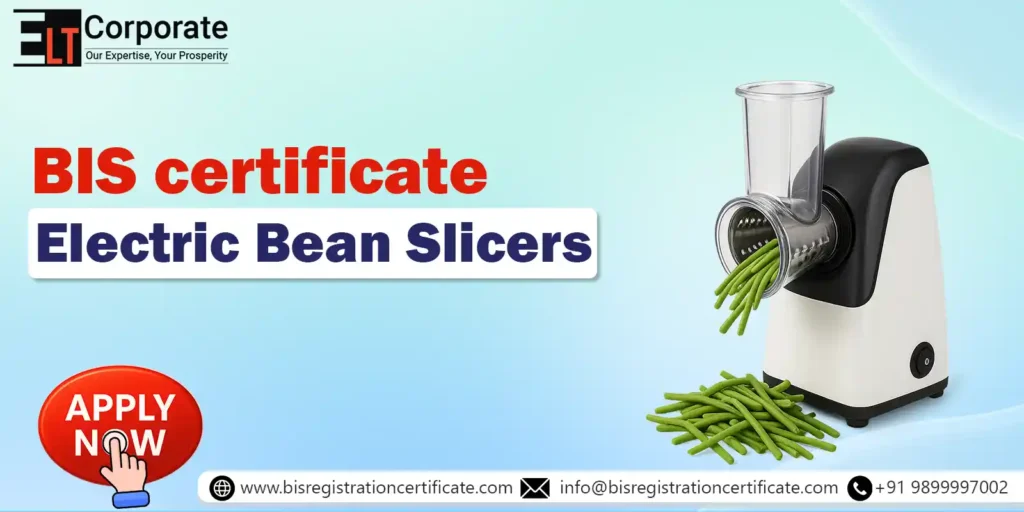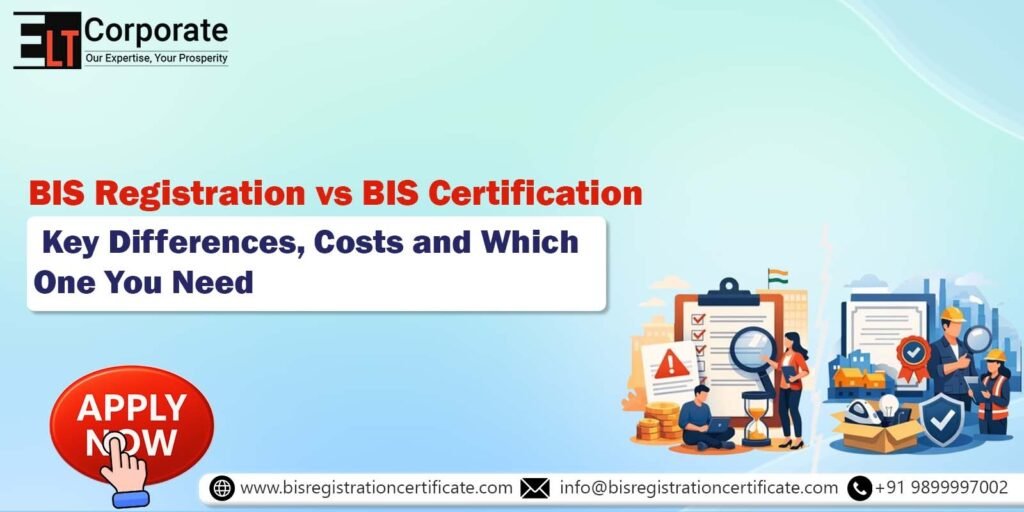In today’s sharp-moving kitchens, electric bean slices have become a practical solution for homes, restaurants and food-processing industries. These small yet efficient equipment help save time and ensure frequent food preparations. But before these slices are made available in the Indian market, they have to undergo an important approval process – BIS Certification.
The Bureau of Indian Standards (BIS) ensures that equipment such as electric bean slicers follow safety and quality requirements, protect consumers and promote fair trade practices.
What is BIS Certification?
BIS certification is an official mark of quality, it confirms that a product corresponds to specific Indian standards (IS code). BIS certification products carry the ISI mark, which is mandatory for several categories of electrical and electronic devices.
For electric bean slices, this certification ensures that:
- They are safe for everyday domestic use.
- They meet electrical safety standards to prevent risks such as electric shocks or overheating.
- They are durable and reliable, assuring long -term consumer satisfaction.
Read More: Introduction To Bureau Of Indian Standards
Why Is BIS Certification For Electric Bean Slicers Mandatory?
Below we mentioned why is BIS Certificate For Electric Bean Slicers mandatory:
- Consumer Safety: Ensures the product does not pose fire, electric shock, or health hazards.
- Compliance: Many kitchen appliances fall under mandatory BIS ISI schemes, making certification compulsory before sales in India.
- Market Access: Without BIS certification, manufacturers or importers cannot legally sell their products in the Indian market.
- Trust Building: A BIS-certified product carries the ISI mark, which enhances brand credibility and consumer trust.
Applicable BIS Standards for Electric Bean Slicers
While the bean slices are not specially nominated, they are usually under the broader category of domestic and similar electrical equipment. The standards applied include:
- IS 302 (Part 2/Section 14): Security of kitchen machines.
- IS 302 (General Requirements): Includes electrical equipment for domestic use.
The accurate standard depends on the design, use and electrical specifications of the product.
Who Needs BIS Certification for Electric Bean Slicers?
Below we mentioned who needs BIS Certificate for Electric Bean Slicers:
- Producer in India: BIS certification should be obtained before distributing products.
- Foreign Manufacturers: Foreign Manufacturer Certification Scheme (FMCS) is required to apply.
- Importers/Distributors: Only BIS can import and sell devices.
Process of Obtaining BIS Certification for Electric Bean Slicers
Below we mentioned steps to obtain BIS Certificate for Electric Bean Slicers:
- Identify the applied standard: Determine which code applies to your product.
- Application Submission: Enter an application with BIS with supporting documents (factory details, product glasses, etc.).
- Product Testing: Samples are tested in BIS-recognized laboratory.
- Factory Inspection: BIS officers can visit the manufacturing site to verify compliance.
- License grant: If the product passes, BIS issues license to use ISI mark.
Read More: Process for getting BIS for Certification
Documents Required for BIS Certification for Electric Bean Slicers
Below we mentioned required documents for BIS Certificate for Electric Bean Slicers
- Application form with manufacturer/importer details.
- Company Registration Certificate (Corporation/Partnership Deed).
- Factory license and layout scheme.
- List of manufacturing equipment and procedures.
- Technical Product Specification.
- Quality control documents and internal test reports.
- Authority letter (for foreign manufacturers nominated by Indian representatives).
- Testing reports from BIS-innovated laboratories.
Read More: Documents Required For BIS Registration
Benefits of BIS Certification for Electric Bean Slicers
Below we mentioned benefits of BIS Certificate for Electric Bean Slicers
- Legal Authority: Necessary to sell in India.
- Safety assurance: reduces the risk of accidents, memories and consumer grievances.
- Consumer belief: ISI Mark buyers increase trust and reliability.
- Better market access: Government tenders, B2B helps in sales and exports.
- Reduced liability: Reduces the manufacturer’s legal and financial risks.
- Competitive edge: Certified equipment stands out in the crowded market.
Penalties for Selling Non-Certified Bean Slicers
Selling or distributing to non-functioned bean slices may be results:
- Seizure of products by officers.
- Penal fines from ₹ 2 lakh to ₹ 5 lakh (on violation basis).
- Import or cancellation of business license.
- Criminal liability in case of consumer loss.
- Loss of brand image and long -term faith.
Conclusion
BIS certification for electric bean slices is not just a legal formality – this is an important step to ensure consumer security, product quality and market reliability. Whether you are an domestic manufacturer or an importer, getting a BIS certificate is legally necessary to distribute your product in India and create confidence with customers.
Is BIS Certification mandatory for Electric Bean Slicers in India?
Yes, BIS Certification is mandatory to ensure safety and quality compliance before sale in India.
Yes, BIS Certification is mandatory to ensure safety and quality compliance before sale in India.
It ensures the product meets ISI standards, providing consumer safety and regulatory approval.
Who can apply for BIS Certification for Electric Bean Slicers?
Who can apply for BIS Certification for Electric Bean Slicers?









